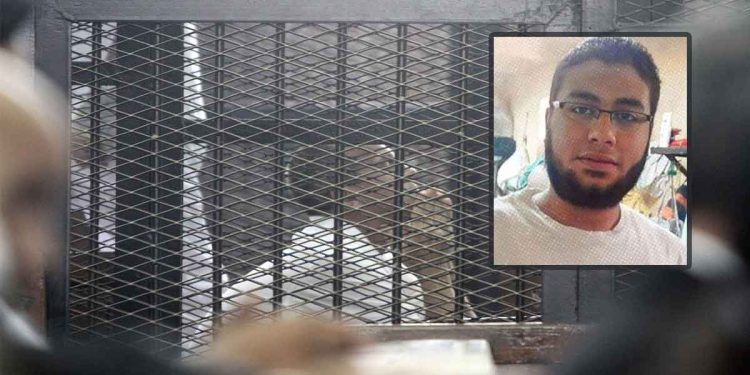The Egyptian detainee Islam Mamdouh Al-Husseini, 26, died in Abu Zaabal prison due to medical negligence and poor conditions of detention.
Al-Husseini, from Al-Marg in Cairo, was arrested by the Egyptian authorities in 2014 when he was 18 years old.
The wife of one of the detainees said that while visiting her husband, she learnt about the death of Islam due to a heart attack.
She added that doctors tried to revive him, “but unfortunately, due to the lack of medical types of equipment and divorces, they failed to save his life.”
She pointed out that Al-Husseini’s mother received his body in shock and tears over her son, who died after eight years of arbitrary detention.
Al-Husseini is the second detainee to die in Egyptian prisons in October, following the death of Mohamed Abdel Hamid Al-Saifi, 61, from Sharkia Governorate, who also died as a result of medical negligence in Badr 3 prison.
Four citizens died in various prisons and detention centres last September.
The number of detainees who died in prisons in Egypt since the beginning of the year has reached 34, in addition to hundreds of others who have been arbitrarily detained since the third of July 2013 and died in prisons.
Egyptian prisons and detention centres are witnessing a steady rise in deaths.
The Egyptian authorities prevent the Red Cross Committee from inspecting prison conditions, leaving prisons wholly isolated from any oversight, except that of the Public Prosecution, which does not primarily investigate crimes of torture but has rather become a partner in covering up for perpetrators.
The International Covenant on Civil and Political Rights states that “prisoners deprived of their liberty should be treated with humanity, with respect for the inherent dignity of the human personality.”





























